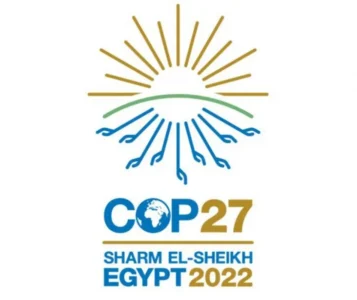
The UK Stewardship Code
There is currently strong regulatory focus at the EU and UK level, as well as a broader societal pressure towards increasing transparency and disclosures on ESG related issues. At the forefront is the establishment of more standardised taxonomies, disclosures to reduce the risk of potential greenwashing. The introduction of the updated UK Stewardship Code 2020 clearly reflects these influences, bringing much higher standards for firms to meet under the new Principles and a revised definition of Stewardship.
The UK Stewardship Code 2020 is a set of twelve voluntary principles for asset managers and asset owners published by the FRC, superseding the 2012 Code which was deemed ineffective by the Kingsman Review (Independent Review of the Financial Reporting Council, 2018). There is also a set of six principles specific to service providers newly introduced in 2020. Whilst the Code is voluntary, under FCA COBS 2.2.3, FCA authorised firms managing investments (excluding venture capital firms) are required to commit to the UK Stewardship Code 2020 or explain their alternative investment approach.
The Code embodies a best practice approach to Stewardship, emphasising four key areas: Purpose and Governance, Investment Approach, Engagement, and Exercising Rights and Responsibilities. The Code also includes the obligation to systematically integrate material ESG considerations, such as climate change considerations, into their decision-making processes. These are becoming key concerns for asset managers and owners, with a recent global survey finding that 47% of respondents ranked brand and reputation as a primary factor in adopting ESG strategy and 37% respondents stated they chose to incorporate ESG strategy to lower their investment risk (THE ESG GLOBAL SURVEY, 2019). As a consequence, institutional and retail investors consider ESG strategy of increasing importance.
How can my firm become a signatory?
Applicant firms must submit a report pertaining to a specified annual reporting period. Firms can apply twice each year with application dates next on 31 October 2021 and 30 April 2022. All twelve principles (or six principles for service providers) must be addressed in the report or detailed justifications provided where a principle has not been applied.
Insight into early applications
In early September, the FRC published the first list of successful signatories to the updated code. Notably, one in three applicants were unsuccessful (Financial Reporting Council, 2021) highlighting the more stringent standards of the new Code. Major asset managers were among those rejected. Claudia Chapman, Head of Stewardship at the FRC commented, “our expectations of a multi trillion-pound global asset manager are very different from a small pension fund with less that £10bn of assets under management” and that the applicants are evaluated relative to their peer group. Feedback from the FRC indicated that unsuccessful applicants had tended to over-rely on policy statements with a limited focus on evidenced outcomes which are of greater precedence than under the 2012 Code.
Among successful signatories this year, there was a broad range in the lengths of the reports submitted. The average report length for asset managers and asset owners was forty pages with some significant outliers submitting reports well over one hundred pages. The firms that submitted particularly lengthy reports were generally very large asset managers who typically have more complex organisational arrangements. This reflects the proportionate approach to assessment taken by the FRC. For both categories, the shortest reports were under twenty pages in length, but all successful reports addressed each of the twelve principles.
The FRC plans to release further guidance for applicants in November this year which should provide greater insight for previously unsuccessful applicants as well as for new applicants applying in April 2022. The guidance will include a review of the new Code as well as a best practice guide and example reports which should be of significant benefit. Novatus Advisory will provide further analysis and insight following the November review, to highlight how firms should best approach their own future applications.
Looking ahead
At present the FRC does not release a list of unsuccessful applicants and does not take a ranked approach to its publication of signatories. However, the FRC has stated it will “consider introducing mechanisms to differentiate the quality of signatories’ reports” (Financial Reporting Council, 2021) and has committed to ensuring signatories continue to meet the requirements of the Code.
Under the 2012 Code the FRC introduced a three-tier system to encourage higher reporting standards. Signatories to the 2012 Code were ultimately segmented into three Tiers and Tier 3 signatories were encouraged to cooperate with the FRC to improve. In 2017, Tier 3 was removed as a category along with the signatories that had not engaged with the FRC to reach Tier 2 standards.
A return to such an approach would likely pressure firms towards better governance and reporting as the number of signatories continues to grow. It will, therefore, be in the interests of firms to take an approach of continuous improvement toward the principles as the standards expected of signatories and applicants will likely continue to develop as the number of signatories grows.
How Novatus can help
Novatus Advisory has a deep understanding of, and expertise in, the Stewardship Code requirements and reporting. We can provide guidance, via a documented gap analysis, on the likelihood of your firm being accepted as a signatory to the UK Stewardship Code, we can assist with writing your application and can implement best practice, delivering strong value for your firm.
We also provide peer analysis, regulatory horizon scanning and insight to determine best practice, setting the most appropriate targets for your specific operating model across both mandatory and voluntary ESG initiatives. See our ESG Services page for further information on our Key Offerings.










